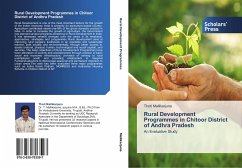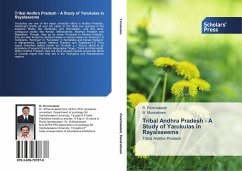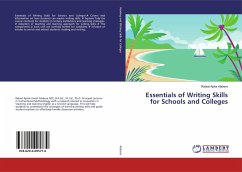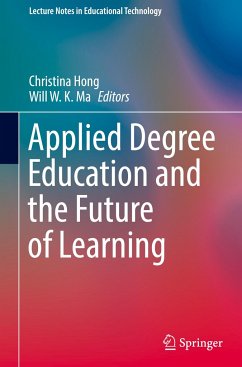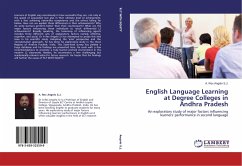
English Language Learning at Degree Colleges in Andhra Pradesh
An exploratory study of major factors influencing learners' performance in second language
Versandkostenfrei!
Versandfertig in 6-10 Tagen
47,99 €
inkl. MwSt.

PAYBACK Punkte
24 °P sammeln!
Learners of English vary enormously in how successful they are, not only in the speed of acquisition but also in their ultimate level of achievement, with a few achieving native-like competence and the others falling far below. How can we explain these differences in their achievements? Why do some learners perform better than their counterparts? What are the major factors influencing these individuals to reach differential L2 achievements? Broadly speaking, the taxonomy of influencing agents includes three different sets of explanatory factors namely affective, cognitive, and social. Dr A Rex...
Learners of English vary enormously in how successful they are, not only in the speed of acquisition but also in their ultimate level of achievement, with a few achieving native-like competence and the others falling far below. How can we explain these differences in their achievements? Why do some learners perform better than their counterparts? What are the major factors influencing these individuals to reach differential L2 achievements? Broadly speaking, the taxonomy of influencing agents includes three different sets of explanatory factors namely affective, cognitive, and social. Dr A Rex Angelo SJ has attempted to probe this vital issue in his scientific study. Adopting the 'emic ' perspective and the ' concatenative ' approach, he has done his exploratory study in the three Regions of Andhra Pradesh, India. This State-level survey has yielded a huge database and his findings are presented here. He ends with a few recommendations to promote a truly learner-centred environment in the modern L2 classrooms. Besides, he enumerates a few challenging but academically relevant vistas for future research. He hopes that his findings will further the cause of 'ELT WITH EQUITY'.




